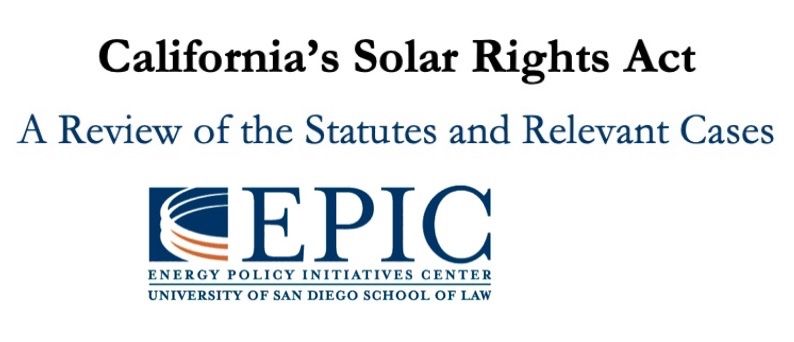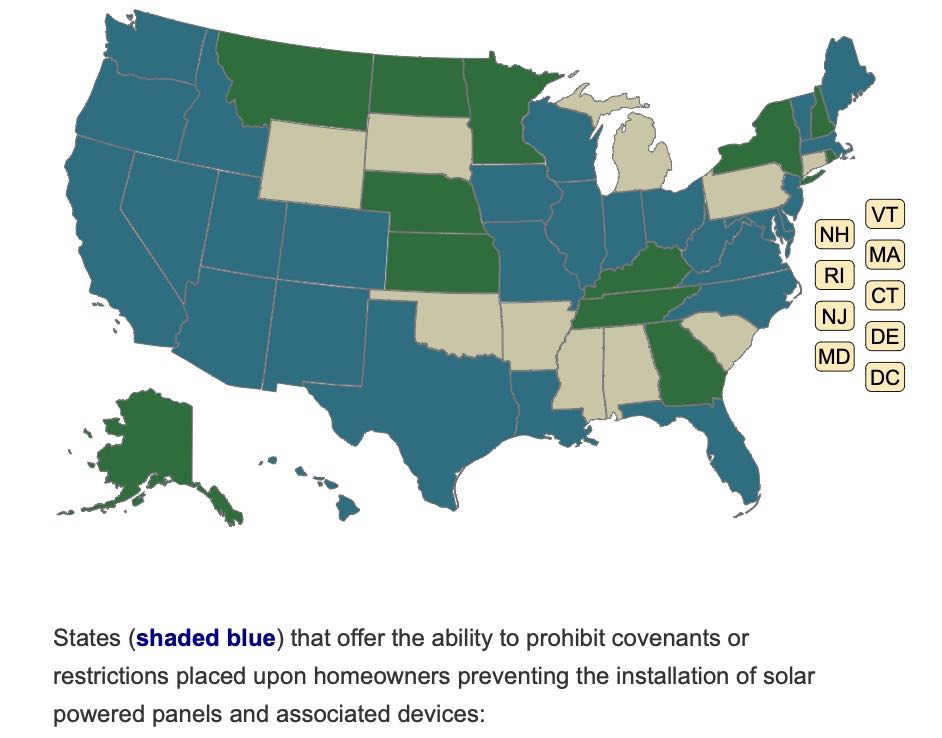Can HOAs Prevent Protective Nets
Last updated at
In many locations HOAs can impose restrictions and approval processes on the installation of solar modules. However, they cannot flatly deny the installations. Generally they are limited to imposing limitations on installation location in order to limit visibility. However, if those limitations impose significant impact on the effectiveness or cost, the limitations cannot be enforced.
Whether those limitations apply to protective equipment is the subject of significant debate.
On-the-whole, it seems illogical that a law designed to ensure the right-of-installation, would not ensure the right-to-protection against damage.
Here is a link to a site containing state-by-state info:
California, for example, has The Solar Homeowners Bill of Rights, aimed at preventing unreasonable restrictions on solar system installation by homeowners governed by HOAs.
Excerpt:
3.2. Does the Act Prohibit All CC&Rs From Restricting Solar Installations?
The Act contains many provisions and broadly addresses solar access issues, but it is perhaps best known for prohibiting CC&Rs that unreasonably restrict solar energy system installations. California Civil Code Section 714(a), in pertinent part, provides that “[a]any covenant, restriction, or condition contained in any deed, contract, security instrument, or other instrument affecting the transfer or sale of, or any interest in, real property . . . that effectively prohibits or restricts the installation or use of a solar energy system is void and unenforceable.”15 Because Section714 does not define the precise meaning and application of“effectively prohibits or restricts,” courts have adopted a practical, flexible standard that permits the many variations of restrictions and effects to be considered on a case-by-case basis.16
Although the intent of Section 714(a) is to prohibit CC&Rs from placing restrictions on solar energy system installation, other subsections of 714 and 714.1 allow CC&Rs to impose certain reasonable restrictions on solar installations.17 Thefollowingprovidesinformationtodeterminewhetherarestrictionisconsidered reasonable under the Act.
3.2.1. Cost and Performance Criteria for Reasonable Restrictions
The Act permits CC&Rs to impose requirements that do not “significantly” increase the cost of the system or decrease its efficiency or performance.18 Sections714(d)(1)(A)and714(d)(1)(B)provide criteria to define when a restriction has “significantly” altered system price or performance for both solar water heating and photovoltaic systems. Restrictions cannot increase the cost of solar water heating systems by more than ten percent, but in no case more than $1,000.00, or decrease the system’s efficiency by more than ten percent.19 Restrictions on photovoltaic systems cannot increase the system cost by more than $1,000 or decrease system efficiency by more than ten percent. 20 Restrictions on either type of system need only increase cost or decrease efficiency to be found unreasonable under the Act.21
Reader conclusion: Unreasonable restriction on installing protective devices causes solar system performance to be unreasonably reduced due to frequent damages, rendering system performance significantly reduced is prohibited. Additionally, the ongoing costs of repairing unprotected solar modules increases cost by more than $1000.
Further excerpt:
Violation of California Civil Code Section 714 California Civil Code Section 714(f) describes the penalties for violation of this section of the Act. It states that “[a]any entity, other than a public entity, that willfully violates this section shall be liable to the applicant or other party for actual damages occasioned thereby, and shall pay a civil penalty to the applicant or other party in an amount not to exceed one thousand dollars ($1,000).” In addition, Section 714(g) provides that reasonable attorney’s fee will be awarded to the prevailing party in a case brought to enforce compliance with Section 714.
